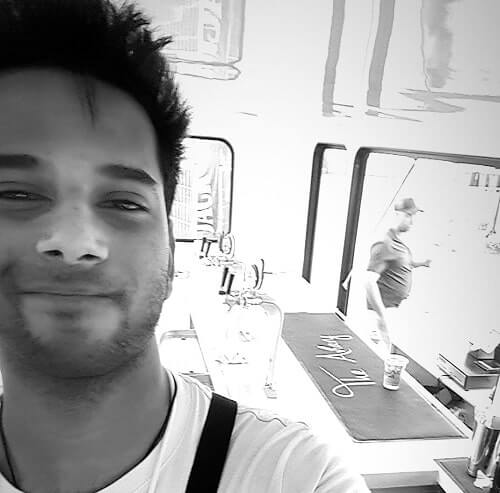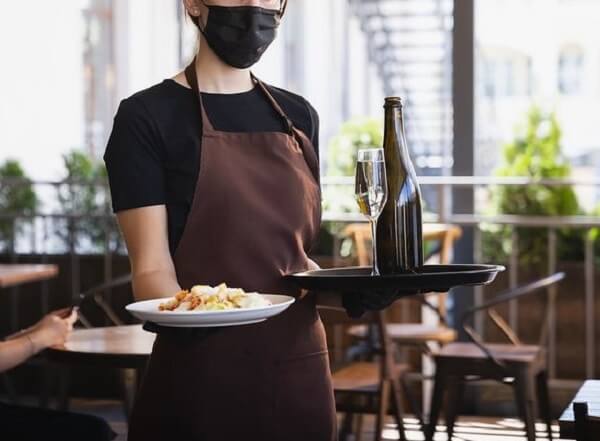As NSW’s lockdown stretches into its seventh week, likely to be extended by another month, members of the community unable to work from home have found it to be a long, testing journey.
Disaster payments, a lumpsum amount for those unable to earn income due to stay-at-home orders, have eased the financial burdens for many. According to the Commonwealth Government, they have paid out more than $490 million to workers in NSW and Victoria who have lost their income.
For others like Anisha Samanta, an international student working in the takeaway section of a restaurant in Belfield NSW, it’s continued exposure to the public that remains a concern.
“Initially, lockdown didn’t affect work too much because the takeaway section remained open. I managed to work around 30 hours during the semester break. Then our head chef tested positive for COVID,” she shared with Indian Link.

Within days, the restaurant was listed as a close contact exposure site. All staff members had to get tested, with eight more people returning positive results. Anyone who had visited over that weekend had to get tested and isolate immediately.
“We went through three rounds of testing. It was really scary,” Anisha admitted.
“You never quite feel the impact of the pandemic until it affects someone close to you like that. Then it hits all at once.”
Luckily, international students are eligible for disaster payments this year, a much needed consideration after massive unemployment in the community in 2020. Receiving around $750 a week for hours of work lost, Anisha has been able to stay afloat during the three weeks that the restaurant has been closed.
Still, recent incidents have made her more wary about working during the pandemic.
“(Restaurants) should probably stop pickups and collections from customers altogether to reduce contact. Sometimes they don’t wear masks and fight with us when we refuse service, as is our restaurant policy. They call the manager and owner to complain. It’s not pleasant at all,” she elaborated.
Swagatalakshmi Roychowdhury, a student at Macquarie University who works part-time in retail, hasn’t been able to work since lockdown was announced on 26 June.
“I wish people would understand that without government support, it is really difficult to get by in these tough times,” she told Indian Link.
READ ALSO: Childcare gap-fee waived for NSW families during lockdown

She’s faced a financial toll, finding it difficult to pay her rent of around $200 and afford groceries too. The 19-year-old worked in a COVID-19 hotspot area and has relied on money from Centrelink.
Currently, non-essential retail stores are closed, except for a select number of premises. As lockdown extends, uncertainty looms over when she’ll be able to go into work again.
“Like they’ve done with hospitality, it would be good if work restrictions of 20 hours are lifted off retail too,” Swagata suggested.
Apart from financial implications, the inability to work for weeks on end can take a serious mental toll on young workers. On 8 August, Minister for Health Greg Hunt announced an investment of $17.7 million in additional mental health measures, recognising that “lockdowns can be difficult and gruelling.”
“The best part of my job was meeting people and interacting with others. Now the hospitality sector has taken a huge hit and it can’t be run from home,” said Preet Desai, a part-time floor manager of a restaurant in Crow’s Nest.
“I’ve been applying for full time roles and doing virtual internships, trying to keep myself focused and busy during lockdown. It’s not easy.”
Fully vaccinated, he laments that the hospitality industry is the first to take a hit when lockdowns are announced.

Aditya Gandham, a bartender in the city of Sydney, echoes the sentiment.
“The hospitality industry is very fragile at the moment. Any type of restrictions on the number of people allowed into the venues affects the business and our working hours are cut down,” he told Indian Link.
As per recent announcements, the easing of restrictions is expected to begin with improved vaccination rates as NSW races to reach 6 million vaccinations by the end of August.
Aditya, who has booked his first dose for later this month, is optimistic.
“I hope people get vaccinated vigorously this month so we could have a smooth transition to summer and Christmas when hospitality venues thrive the most.”
He also has a message for when lockdown is lifted and things can seemingly return to normal.
“I hope people understand that hospitality staff taking the risk to work long hours, wearing masks and making sure people have a pleasant experience, deserve the respect of the customers. This could be shown in no better way than the customers following Covid-19 rules while at the venue,” he said.
READ ALSO: #MissionJAB: Indian Link’s campaign for increased vaccine uptake
Link up with us!
Indian Link News website: Save our website as a bookmark
Indian Link E-Newsletter: Subscribe to our weekly e-newsletter
Indian Link Newspaper: Click here to read our e-paper
Indian Link app: Download our app from Apple’s App Store or Google Play and subscribe to the alerts
Facebook: facebook.com/IndianLinkAustralia
Twitter: @indian_link
Instagram: @indianlink
LinkedIn: linkedin.com/IndianLinkMediaGroup




